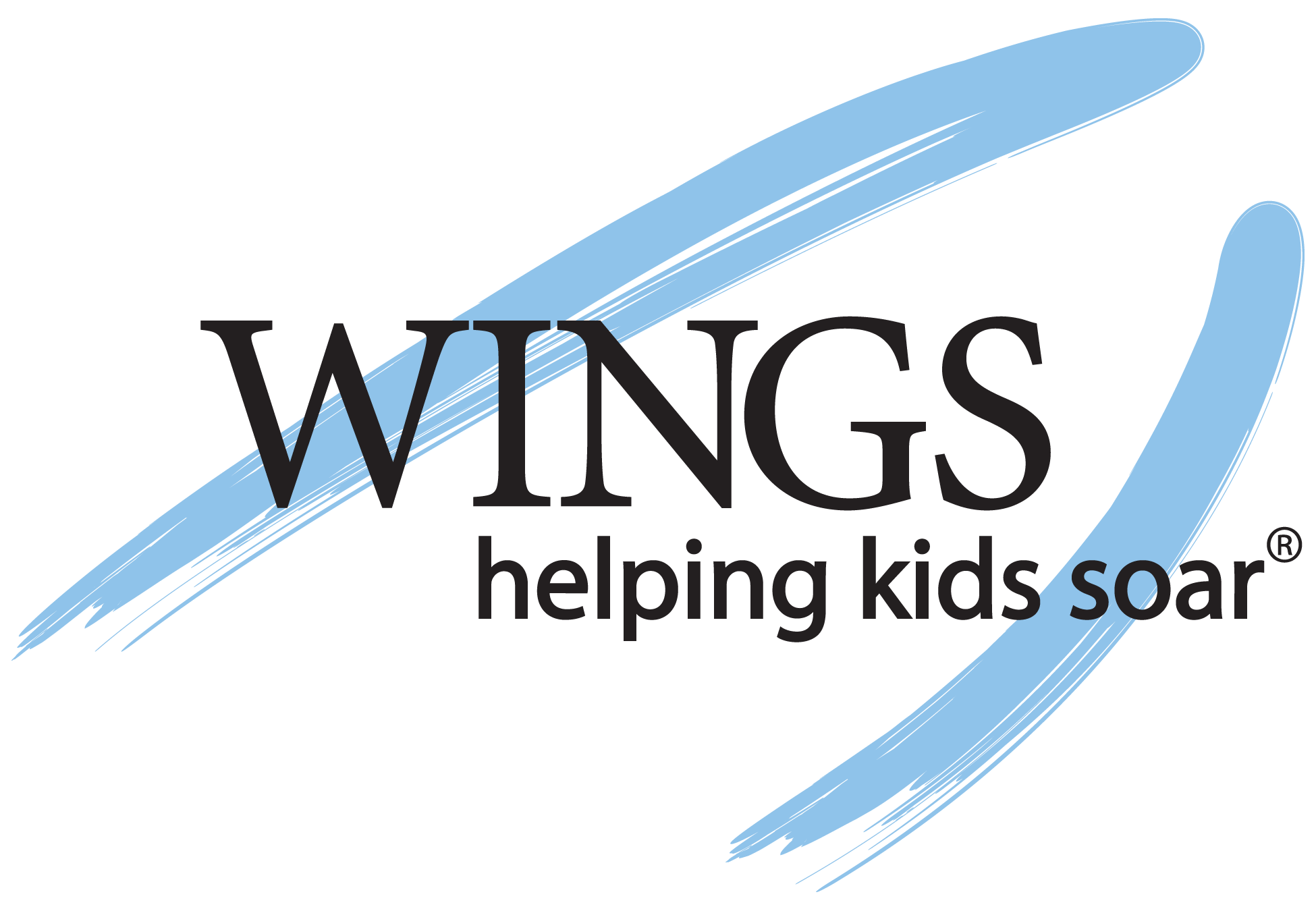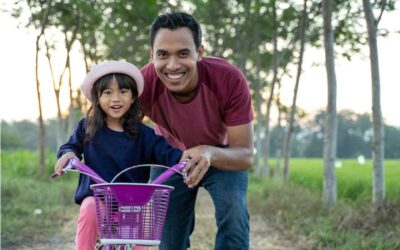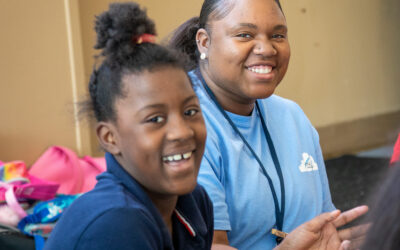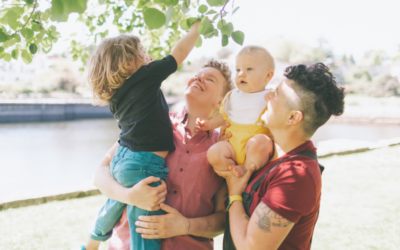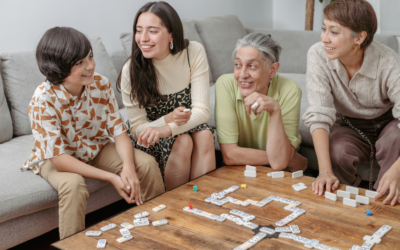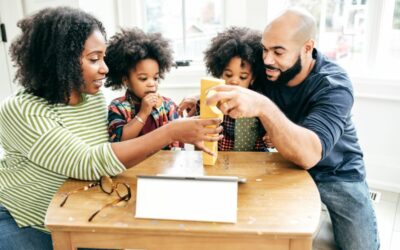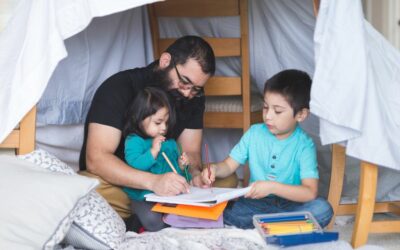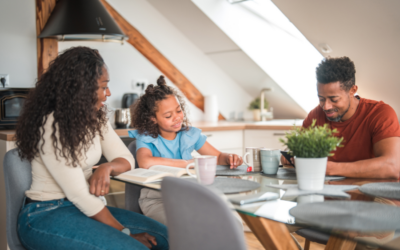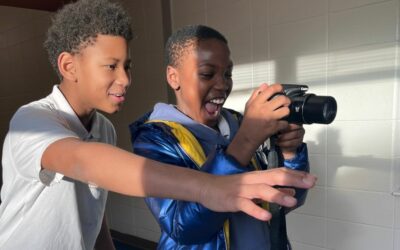Helpful Tips for SEL Skill Building During Summer Months
Just because kids aren’t in school, doesn’t mean they can’t learn new social emotional skills.
We all know summer is a time for fun and memorable days off, relaxing with family and friends. Did you know you can also use these fun and memorable moments as opportunities to boost social and emotional skill development? (And, we’ll help you do it in a way that your kids won’t even notice you’re doing it intentionally!)
From sitting around the campfire making s’mores to playing Marco Polo at the neighborhood pool, there’s ample opportunity for kids to engage in social activities and boost their skills in the process. Check out these hot SEL tips for prepping your child for social interactions at summer camps, during outdoor activities, and playdates with friends.
Preparing for Summer Camps
Summer camps provide a great opportunity for kids to make new friends and engage in fun activities. Remember your first time in a canoe at sleepaway camp? Or that soccer camp your parents signed you up for? While many kids are excited about new experiences, some children may feel anxious or nervous about attending camp. To prepare your child for camp, here are some SEL practices you can use:
- Talk to your child about their feelings: Encourage them to express their feelings about attending camp. Listen actively and validate their emotions.
- Set realistic expectations: Let your child know it’s okay to feel nervous or anxious on the first few days of camp. There will be many new friends to make and caring adults to guide them if they need help. One way to ease anxieties can be to tell stories of your own days at camp, highlighting the best moments or takeaways you remember.
- Practice social skills: Role-play social situations with your child, such as introducing themselves to others, shaking hands, and taking turns.
- Create a ritual or routine: The routines and rituals of family life are very reassuring to children. They help create a sense of stability. Use rituals to create a predictable emotional connection as they leave for camp and return home. It could be a special handshake or a saying you repeat like “Love you to the moon and back!”

Engaging in Outdoor Activities
Outdoor activities like hiking, swimming, and biking not only promote physical health, but also provide opportunities for children to develop their social emotional skills. Here are some ways you can use SEL practices while engaging in outdoor activities (and don’t forget the bug spray!):
- Encourage teamwork: Engage in activities that require cooperation and teamwork, such as building a sandcastle or playing a game of frisbee.
- Practice problem-solving: Encourage your child to solve problems on their own, such as finding the best route to hike or figuring out how to set up a tent.
- Teach empathy: Encourage your child to think about the feelings of others, such as checking on a friend who fell while biking or helping someone who is lost.

Playdates with Friends
Playdates with friends are a great way for kids to have fun and practice their social skills. But, rules and boundaries look different from family to family. Before a playdate, have a conversation with your child addressing behavior expectations in a gentle, calm manner. Talk with your child about how your family culture might differ from their friend’s—without passing judgment. Try these SEL practices to make play dates even more beneficial:
- Encourage positive self-talk: Help your child use positive self-talk, such as “I can do this” or “I am strong and capable.”
- Teach emotional regulation: Help your child identify and regulate their emotions, such as taking a deep breath (or three!) when they feel angry or frustrated.
- Practice active listening: Encourage your child to listen actively to their friends, ask questions, and show interest in what they have to say.
- Teach conflict resolution: Help your child learn how to resolve conflicts with their friends in a respectful, constructive way:
- Talk through the conflict. Make sure you both have a clear understanding of what can cause disagreement and clarify what each of you need.
- Come up with a few positive options. What’s a fair solution that meets both of your needs?
- Compromise on a positive option everyone can agree on.
- Respect the opinions of others, even if you can’t agree.
Summer break provides a great opportunity to boost your child’s social emotional learning skills. By using SEL practices during summer camps, outdoor activities, and playdates with friends, you can help your child develop the critical skills that will benefit them this summer, in school, and throughout their lives.
